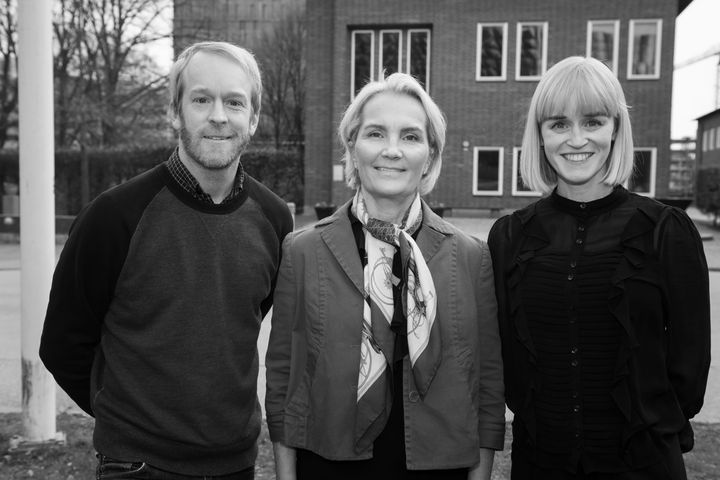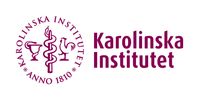Online CBT effective for social anxiety disorder in young people
Social anxiety disorder can cause considerable suffering in children and adolescents and, for many with the disorder, access to effective treatment is limited. Researchers at Centre for Psychiatry Research at Karolinska Institutet and Region Stockholm, Sweden, have now shown that internet-delivered cognitive behavioural therapy is an efficacious and cost-effective treatment option. The study is published in the journal JAMA Psychiatry.

Social anxiety disorder (SAD, previously known as social phobia) has a typical onset during childhood and is characterised by an intense and persistent fear of being scrutinised and negatively evaluated in social or performance situations. The fear typically leads to avoidance of such anxiety triggering situations or are endured under great distress, resulting in an impaired ability to function in everyday life. The disability can lead to underperformance in school, social isolation from peers and, inability to partake in leisure activities.
As one of the most common anxiety disorders among youth, the disorder affects 5 to 10 percent of the youth population and without effective treatment it has been linked to long-term psychosocial adversity and persistence into adulthood.
Few receive evidence-based treatment
Despite known evidence-based treatments for SAD, such as cognitive behavioural therapy (CBT), the access to effective treatment is very limited. As a means to increase access, researchers at Centre for Psychiatry Research at Karolinska Institutet and the Child and Adolescent Mental Health Services in Region Stockholm have now developed and evaluated a 10-week internet-delivered CBT (ICBT) programme for young people with SAD.
The study was conducted between 2017 and 2020, and included 103 youths aged 10 to 17 along with their parents. Participants were randomly assigned to either internet-delivered CBT or an active control group, internet-delivered supportive therapy. Both interventions included ten online treatment modules with weekly therapist support and, three video sessions with the therapist. Parents parallelly received five online modules with therapist support.
ICBT is effective
The results showed that ICBT was significantly more effective than supportive therapy in reducing social anxiety and comorbid psychiatric symptoms, as well as in increasing the level of global functioning. The superiority of ICBT was shown in assessments of participants' symptoms made by masked assessors as well as in ratings by participants themselves and their parents.
According to the researchers, the digital format can also increase access to evidence-based treatment for children and adolescents with SAD. ”Offering treatment digitally means that children and parents don't have to take time off school and work to travel to a health care facility,” says the study's first author Martina Nordh, psychologist and researcher at the Centre for Psychiatry Research, part of Karolinska Institutet's Department of Clinical Neuroscience, and Region Stockholm. ”We also believe it may lower the threshold to seeking treatment, as young people with SAD can find it too challenging to meet with unfamiliar people and to be in a new setting.”
Less costly for the healthcare services
The total time spent by the therapists in ICBT was about a quarter of the time normally required by face-to-face CBT for SAD. ”Shorter therapist time enables each therapist to treat more patients and may lead to reduction of waiting times,” says principal investigator Eva Serlachius, child and adolescent psychiatrist and adjunct professor at the Centre for Psychiatry Research, part of Karolinska Institutet's Department of Clinical Neuroscience, and Region Stockholm. ”This also makes digital CBT less costly for the healthcare services and resources can be redistributed to those with greater need of more intensive treatment.”
The researchers are now working on a joint project with Region Stockholm's Internet treatment unit within the Child and Adolescent Mental Health Services (BUP Internetbehandling) to plan for the implementation and dissemination of the programme via a Swedish national platform.
The study was supported by grants from FORTE (the Swedish Research Council for Health, Working Life and Welfare) and Region Stockholm.
Publication: ”Therapist-guided internet-delivered CBT versus internet-delivered supportive therapy for children and adolescents with social anxiety disorder: a randomized controlled trial.” Martina Nordh, Tove Wahlund, Maral Jolstedt, Hanna Sahlin, Johan Bjureberg, Johan Åhlén, Maria Lalouni, Sigrid Salomonsson, Sarah Vigerland, Malin Lavner, Lars-Göran Öst, Fabian Lenhard, Hugo Hesser, David Mataix-Cols, Jens Högström and Eva Serlachius. Jama Psychiatry, online 12 May 2021, doi: 10.1001/jamapsychiatry.2021.0469.
Contacts
For more information, please contact:
Martina Nordh, psychologist and postdoctoral researcher
Department of Clinical Neuroscience, Karolinska Institutet
Mail: martina.nord@ki.se
Eva Serlachius, child and adolescent psychiatrist and adjunct professor
Department of Clinical Neuroscience, Karolinska Institutet
Mail: eva.serlachius@ki.se
Jens Högström, psychologist and associate professor
Department of Clinical Neuroscience, Karolinska Institutet
Mail: jens.hogstrom@ki.se
Phone: +46 8 524 860 77 (Karolinska Institutet’s press office)
Images

Karolinska Institutet (https://ki.se/en) is one of the world’s leading medical universities. Our vision is to advance knowledge about life and strive towards better health for all. Karolinska Institutet accounts for the single largest share of all academic medical research conducted in Sweden and offers the country’s broadest range of education in medicine and health sciences. The Nobel Assembly at Karolinska Institutet selects the Nobel laureates in Physiology or Medicine.
Subscribe to releases from Karolinska Institutet - English
Subscribe to all the latest releases from Karolinska Institutet - English by registering your e-mail address below. You can unsubscribe at any time.
Latest releases from Karolinska Institutet - English
New method reveals how the brain and inner ear are formed3.4.2025 20:00:00 CEST | Pressmeddelande
Researchers at Karolinska Institutet have developed a method that shows how the nervous system and sensory organs are formed in an embryo. By labelling stem cells with a genetic ‘barcode’, they have been able to follow the cells’ developmental journey and discover how the inner ear is formed in mice. The discovery, published in Science, could provide important insights for future treatment of hearing loss.
Fluoride in drinking water is associated with impaired childhood cognition7.3.2025 15:30:00 CET | Pressmeddelande
Elevated concentrations of fluoride can occur in well water, and in some countries, it is added to drinking water to counteract caries in the population. A study from Karolinska Institutet in Sweden now supports a few previous studies indicating that exposure to fluoride during the fetal stage or early childhood may impair cognition in children. The study is published in the journal Environmental Health Perspectives.
Children with ARFID face increased risk of disease17.2.2025 17:00:00 CET | Pressmeddelande
Children with avoidant restrictive food intake disorder (ARFID) have an elevated risk of developing psychiatric and physical conditions, a new study from Karolinska Institutet published in JAMA Pediatrics reports. The study highlights the importance of early identification to improve care of these children.
Preterm babies receive insufficient pain management27.1.2025 15:29:17 CET | Pressmeddelande
A large proportion of babies born very early need intensive care, which can be painful. But the healthcare system fails to provide pain relief to the full extent. This is shown by the largest survey to date of pain in neonatal care, now published in the journal Pain.
New study paves way for immunotherapies tailored for childhood cancers20.1.2025 17:00:00 CET | Pressmeddelande
Researchers at Karolinska Institutet and the Astrid Lindgren Children’s Hospital in Sweden have determined how children’s immune systems react to different kinds of cancer depending on their age. The study, which is published in the journal Cell, reveals significant differences between the immune response of children and adults, and has the potential to lead to new tailored treatments for children with cancer.
In our pressroom you can read all our latest releases, find our press contacts, images, documents and other relevant information about us.
Visit our pressroom